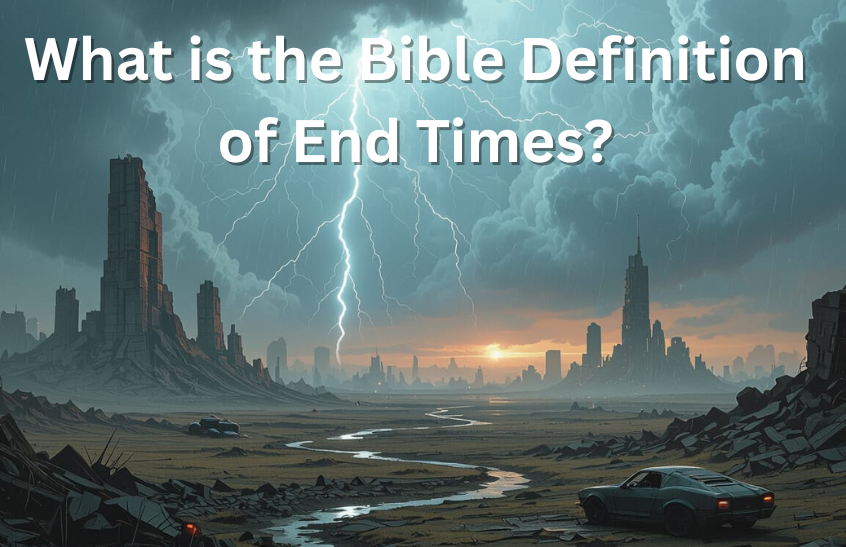
15 Aug What is the End Times?
If you do a search for ‘end times’ in your Bible (using biblegateway.com) you won’t find that phrase in the text anywhere. You might see it a few times in the chapter titles that translators add, such as for Daniel 12 and Matthew 24. But those are added labels not in the actual Bible.
Another phrase that it doesn’t use is ‘end of the world.’ You won’t find that one either.
So if the Bible itself doesn’t contain the phrase ‘end times’ or ‘end of the world,’ what wording does it use?
It uses phrases like ‘end of the age,’ ‘ends of the ages,’ and ‘latter days.’ Sometimes the ‘latter days’ is also called or translated as the ‘last days.’
Firstly the Latter Days
In the collective Jewish mind at the time of Jesus it was believed there were two ages. The age before the Messiah, sometimes known as the ‘former days,’ and the days after the Messiah known as the ‘latter days.’
For example, in Peter’s sermon on the day of Pentecost he quotes the Prophet Joel saying, ‘in the last days I will pour out my spirit on all flesh.’ (Acts 2:17) This was in reference to the event unfolding before them which occurred two thousand years ago. This is a completely sensible idea because the last days were the days after the Messiah, and indeed the spirit was poured out in those days after Jesus ascended.
So we too are living in the latter days, or the last days according to that definition. But this is not to mean it is the last days on planet Earth. Certainly two thousand years ago when the spirit was poured out was not the last days of planet Earth.
Here is my definition of these phrases:
Latter Days/Last Days: a reference to times that would come after the Messiah. In that sense we are living in the latter days, or the last days now. This isn’t a reference to the last days before the world ends.
Secondly Concerning Ages:
The Bible speaks of the end of the age, but this is not synonymous with being the end of the world. There were two great ages in prophecy. The age prior to the Messiah and the age after the Messiah. Sometimes Bible teachers may refer to these as the age of the Jews and the age of the Church. However it is very important to realise that the Church is both Jews and Gentiles. The early church was in fact 100% Jewish until the first Gentile convert Cornelius – maybe ten years after the day of Pentecost.
These two ages however did not stop and start simultaneously, but they overlapped. So the Church started with Christ, most specifically on the day of Pentecost, around about AD30. But the winding up of the Old Covenant did not happen until AD70. So there are two ages, but they overlap by 40 years.
So here are some definitions that can work for these phrases
End of the Age: a reference to the ending of the former days, and the ending of the Jewish age. The Jewish age finished in AD70 with the destruction of the second temple. Jesus spoke about the end of the age a number of times in his speeches.
Ends of the Ages: a reference to the 40 year period where the two ages overlapped. This was the period where the Jewish age was ending and the Church age was starting. It was a time of much turmoil and persecution.



No Comments